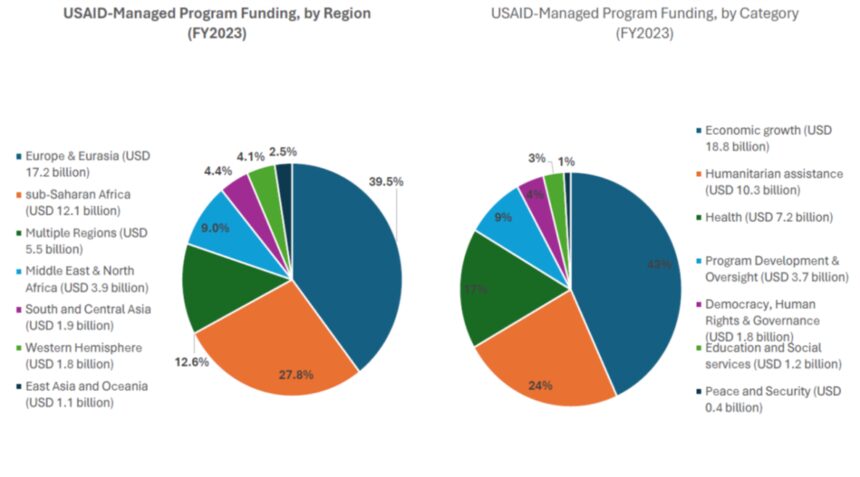The sudden withdrawal of the United States from key global health organizations has sent shockwaves through the international humanitarian community this week, potentially endangering millions of vulnerable people worldwide. As funding pipelines freeze and programs face immediate cutbacks, health experts warn that the resulting vacuum could trigger widespread hunger, disease outbreaks, and humanitarian crises on a scale not seen in decades.
“This represents the most significant disruption to global health infrastructure in a generation,” said Dr. Eleanor Ramirez, former WHO emergency response coordinator. “The timing couldn’t be worse, with multiple regions already facing severe food insecurity and emerging infectious disease threats.”
The World Health Organization stands to lose approximately 22% of its operational budget, while the World Food Programme may see up to $3.7 billion in funding disappear. Officials from both organizations are scrambling to identify alternative funding sources, but acknowledge that significant program cuts are inevitable without U.S. support.
In sub-Saharan Africa, where American-funded programs have provided essential vaccinations to over 120 million children annually, public health officials predict immunization rates could fall below 60% in some regions—well below the threshold needed for community protection against deadly diseases like measles and polio.
“We’re talking about the potential collapse of health systems that have taken decades to build,” said Richard Thornton, executive director of International Health Partners. “The progress made against preventable childhood diseases could be reversed within months, not years.”
The withdrawal comes at a particularly precarious moment for global food security. The World Food Programme had already been forced to reduce rations in 38 countries due to funding shortfalls before the U.S. announcement. Now, an additional 43 million people face the immediate threat of severe food insecurity, according to emergency assessments completed this week.
Martha Karimi, who oversees nutrition programs across East Africa, described the situation as “catastrophic” during an emergency briefing yesterday. “We’re already seeing families adopting extreme coping mechanisms—selling essential assets, removing children from school, and reducing to just one meal per day. Without intervention, acute malnutrition rates will rise dramatically.”
The economic ripple effects may extend far beyond immediate humanitarian concerns. A report released by the Global Health Security Consortium estimates that disruptions to disease surveillance networks could cost the global economy upwards of $300 billion if even a single major outbreak goes undetected or uncontained as a result of reduced capacity.
“This isn’t just about health—it’s about global stability,” noted Canadian Foreign Minister Thomas McKay. “When health systems collapse and food becomes scarce, we inevitably see increased migration, political instability, and conflict.”
Several Canadian aid organizations have announced emergency funding initiatives to help bridge critical gaps, but acknowledge these efforts represent just a fraction of what’s needed. The Canadian government has pledged an additional $275 million in emergency assistance but stopped short of committing to long-term funding increases.
Some experts see the current crisis as an opportunity to reimagine global health governance. “The over-reliance on U.S. funding has always been a structural vulnerability,” explained Dr. Amina Osei, professor of global health policy at the University of Toronto. “This painful moment might force the kind of diversification of funding sources that strengthens the system in the long run.”
Nevertheless, the immediate outlook remains dire. Humanitarian organizations report donor fatigue is at an all-time high, while needs continue to escalate worldwide. Without swift intervention from other wealthy nations, the human cost could be staggering.
As the international community grapples with this unprecedented funding crisis, a fundamental question emerges: in an increasingly interconnected world where diseases and hunger recognize no borders, can we afford to abandon the global health systems that protect us all?










